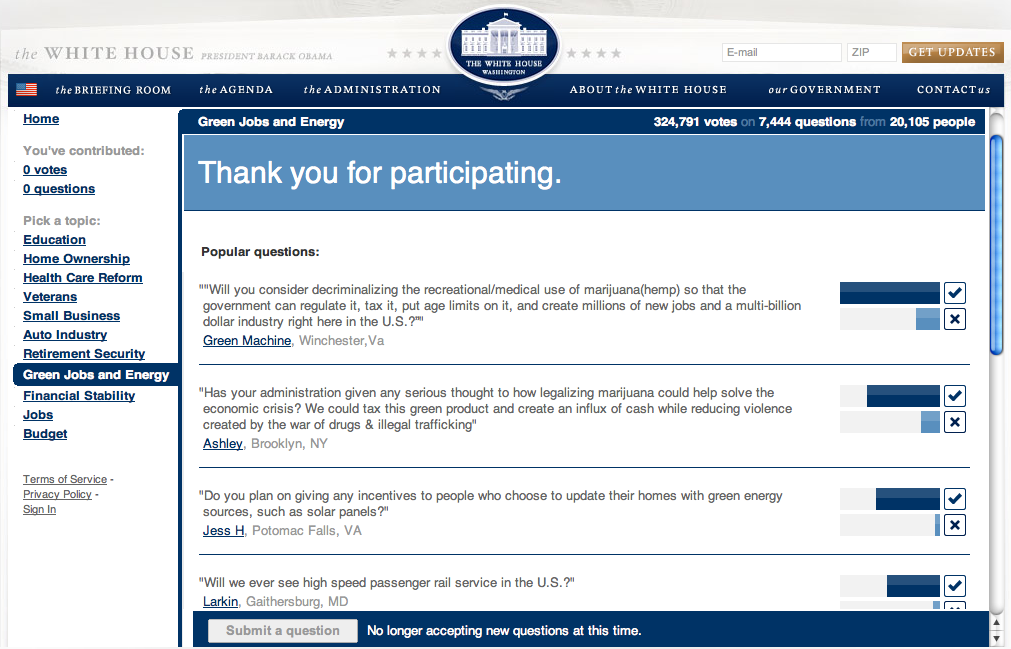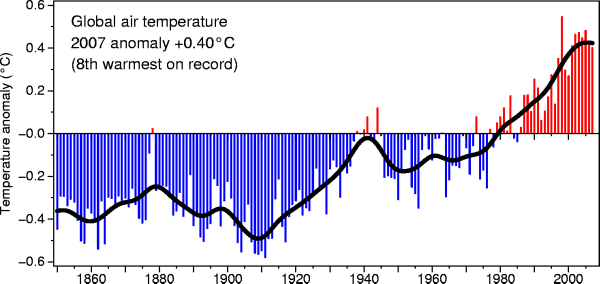
And here is a round-up of this week’s Green numbers…
-
Member States of the European Union have agreed on targets aimed at reducing greenhouse gas emissions by cutting energy consumption by 20% and increasing the share of renewables in the energy mix to 20% by 2020. The ‘Europe’s Energy’ project gives users a set of visual tools to put these targets into context and to understand and compare how progress is being made towards them in different countries.
-
Survey results: Utilities executives on Energy Efficiency and the Smart Grid
The survey asked 106 utility executives ? the people that arguably know more about the energy supply and demand challenges our nation faces than anyone else ? a range of questions on the smart grid, energy efficiency and related topics and issues.
We issued a press release today with some of the highlights, but to help put this week?s news into context, we also wanted to share a full breakdown of the results. Nothing earth shattering, but worth keeping in mind as the week progresses?
-
10 Smart Grid Trends from Distributech
The annual smart grid event Distributech kicked off in San Diego Tuesday morning and ? as expected ? unleashed a whole series of news from smart grid-focused firms. From new home energy management products, to plug-in car software, to distribution automation gear, this is a list of trends and news from the show.
-
US venture capital (VC) investment in cleantech companies increased by 8% to $3.98 billion in 2010 from $3.7 billion in 2009 and deal total increased by 7% to 278, according to an Ernst & Young LLP analysis based on data from Dow Jones VentureSource. VC investment in cleantech in Q4 2010 reached $979 million with 72 financing rounds. VC investment in cleantech in Q4 2010 reached $979 million with 72 financing rounds, flat in terms of deals and down 14% in terms of capital invested compared to Q4 2009.
“In comparison to the early days of cleantech, the 2010 US VC investment results reflect a turning point in the industry due to improving credit and capital markets, the deployment of stimulus spending and increasing corporate cleantech adoption,” said Jay Spencer, Ernst & Young LLP’s Americas Cleantech Director.
-
A jump at the pump – bad news for more than motorists
Few trends cast shadows on economies and politicians like a rise in the cost of petrol. Barack Obama?s presidency, so far a minefield of crises, can add one more in the form of higher prices at the pump. Entering the last full week of January the average price of a gallon (3.7 litres) of petrol stood at $3.11, up 40 cents from a year earlier. Fuel has never cost so much in January, but that is unlikely to be the highest price Americans pay for it this year.
-
Arctic Oscillation brings record low January extent, unusual mid-latitude weather
Arctic sea ice extent for January 2011 was the lowest in the satellite record for that month. The Arctic oscillation persisted in its strong negative phase for most of the month, keeping ice extent low.
Arctic sea ice extent averaged over January 2011 was 13.55 million square kilometers (5.23 million square miles). This was the lowest January ice extent recorded since satellite records began in 1979.
-
Despite emails and cold winter, 83% of Brits view climate change as a current or imminent threat
The public?s belief in global warming as a man-made danger has weathered the storm of climate controversies and cold weather intact, according to a Guardian/ICM opinion poll.
Asked if climate change was a current or imminent threat, 83% of Britons agreed, with just 14% saying global warming poses no threat. Compared with August 2009, when the same question was asked, opinion remained steady despite a series of events in the intervening 18 months that might have made people less certain about the perils of climate change
You should follow me on Twitter here
Photo credit kirstyhall







